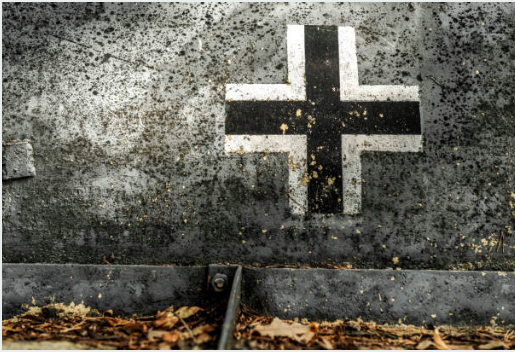Space Nazis? The problematic use of Nazism in sci-fi media

An alarming trend seems to be taking shape in general science fiction media. Nazis are increasingly normalised as the antagonists in various fantasy and sci-fi settings. Ever since their defeat in 1945, they’ve been portrayed in the media as the evil people that they were. Today, the extremist ideology is generally seen as the rightful loser in history. They are shown as the utmost, most pure and distilled evil that mankind has ever known, and for good reason. Of course historical fiction is going to use them as antagonists. This makes sense.
However, their use in sci-fi stories has become a grotesque caricature, with Nazi scientists being seen to do everything from creating powerful cyborgs and genetically-enhanced supersoldiers to building secret bases on the moon and torturing people for the pure joy of it in post-war America. Additionally, imagery from this place and time are used cheaply, without representing the gravity of the situation, in other media in order to show that someone is indeed evil. (A scene in Star Wars where General Hux addresses his stormtroopers is eerily reminiscent of Hitler addressing his army. See this on youtube for yourself here).
Before even diving into the ethics of this, let’s describe this from a narrative standpoint. It’s cheap. Overused. Everyone with even the most elementary history education knows that Nazis did bad things. So when the grand reveal in American Horror Story season 2 is that Dr. Arden (who was earlier shown to torture people with mutated strain of tubercolosis- an evil that is pretty self-evident), is a former Nazi, it really is just bad storytelling. We know that someone who tortures people sadistically with bioweapons is a bad person. Him being a Nazi adds absolutely nothing to the story, except as a way to say “Look! He’s a bad guy!”.
In fact, it’s never relevant to the story again. It’s a classic example of what writers mean when they say that you should “show, don’t tell”.
What this means is that the label Nazi has simply become synonymous with evil, without any true understanding of the gravity of what that really means. Captain America’s archnemesis, Red Skull, is a Nazi, yet it really doesn’t tell us anything about him except that he’s the antagonist of the comic. So when Dr. Arden is revealed to be a Nazi, they may as well have said it out loud that he’s an evil person, as the Nazism adds absolutely nothing to his character.
Even more problematically, it serves to undermine the grotesqueness of actual Nazi victims. Josef Mengele, the doctor at the Birkenau concentration camp, was widely known to carry out horrific human experiments involving the mutilation, torture and killing of Jewish children, twins and people with physical or mental disabilities (for more information on Mengele’s experiments, click here). Really, Nazis don’t need to do any more to be considered grotesque and inhuman. They’ve done enough harm to this world already. So when Dr. Arden mutilates people with tuberculosis, when a secret Nazi network kills hundreds of family fathers in Ira Levin’s Boys from Brazil or when Nazis invade from outer space to kill the president of America in the 2012 movie Iron Sky, it all serves to undermine and to take away from the actual cruelties of their regime. They don’t need to be doing all this for us to consider them evil, and in portraying them in this way, we are dehumanising and fictionalising their actual, historical victims. Something that we, as a society still affected to this day by the horror that is the holocaust, should not be allowing to occur.
This article has barely scratched the surface of this alarming aspect of sci-fi media. Since 1945, hundreds and thousands of movies, tv series, books and comics have entertained these kinds of speculative ideas that Nazis aren’t truly defeated in World War 2, and are alive and well in today’s world, plotting to enact their diabolical plans for world domination. It’s understandable, as of course, their actions were so cruel as to grant them a special place in the villain gallery of history. But by letting ourselves entertain these thoughts, we are unwittingly granting them power through our myths, our stories and our narratives around them. We are effectively removing ourselves from any real understanding of the actual horrors they committed, the crimes against all of humanity that we know they took part in. By portraying them as cartoon villains, we fictionalise them in a way that allows us to, at least for a short while, forget the true impact they’ve had in the real world. As every historian around the globe will tell you, I’ll leave you with this final thing to keep in mind; that we must never forget.



